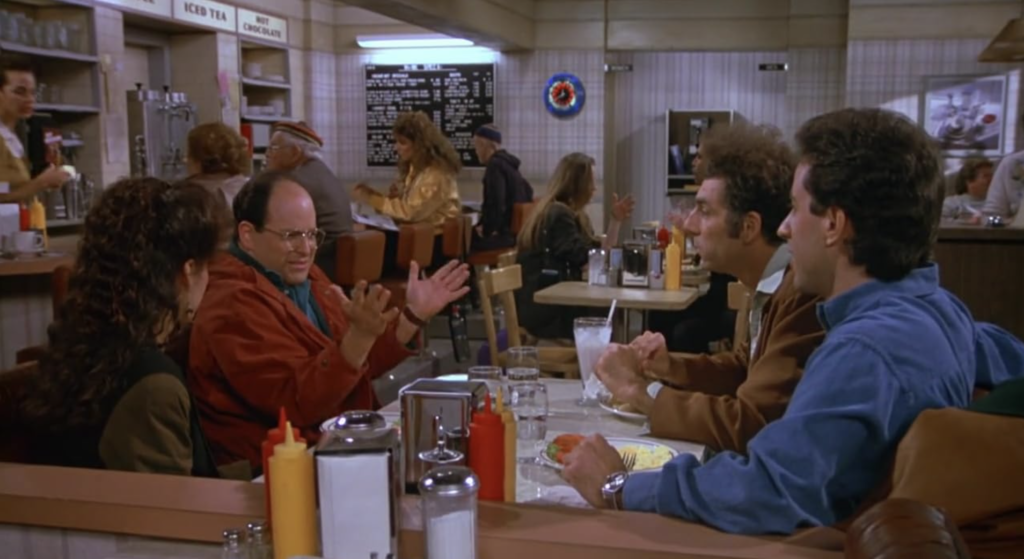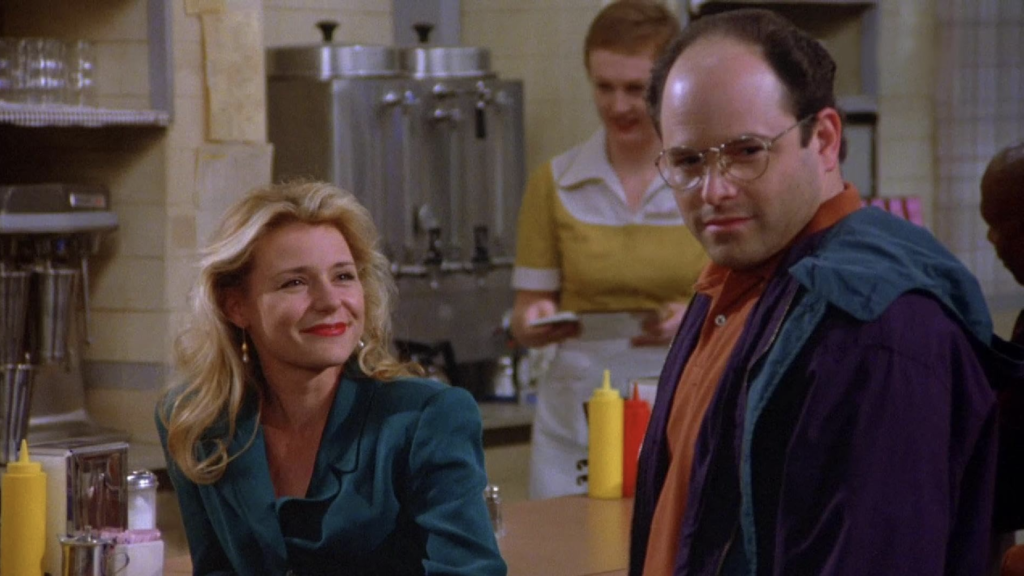
Here it goes, my favorite comedy series of all time. NBC’s Seinfeld, hailed as the greatest comedy series of all time, has left an indelible mark on television history. Created by comedic genius Larry David and Jerry Seinfeld, the show presents a unique approach to comedy, focusing on the minutiae of everyday life, making it a cultural phenomenon that continues to resonate with audiences decades after its original run.
Was that wrong? Should I have not done that? I tell ya, I gotta plead ignorance on this thing because if anyone had said anything to me at all when I first started here that that sort of thing was frowned upon… you know, cause I’ve worked in a lot of offices and I tell you people do that all the time.
Seinfeld revolutionized the sitcom genre by deviating from the traditional plot-driven narratives that were prevalent in the 1980s and early 1990s. Instead of focusing on heartwarming moments or moral lessons, Seinfeld centered around the mundane aspects of everyday life, often described as a “show about nothing,” even though later Jerry Seinfeld explained during his Julia Louis-Dryfus’ Mark Twain Prize tribute speech, “The show is about three stupid guys talking in an idiotic way about completely stupid things, which is not nothing.” This unique approach allowed the series to explore the banalities and absurdities of daily existence, making it relatable to a broad audience. The show’s creators, Jerry Seinfeld and Larry David employed observational humor to highlight the quirks and idiosyncrasies of its characters, which resonated deeply with viewers. This style of humor has had a profound influence on subsequent sitcoms. Shows like The Office and It’s Always Sunny in Philadelphia have adopted similar approaches, focusing on the comedic potential of ordinary experiences. Seinfeld pioneered this “slice of life” comedy, shifting the focus from grand plot points to the small, relatable moments that define everyday existence. The show’s narrative structure was also groundbreaking. Episodes often featured multiple, seemingly unrelated storylines that would cleverly, surprisingly intersect by the end. This intricate plotting required meticulous writing and timing, which became a hallmark of the series.

Seinfeld excels in character-driven storytelling, with each of the main characters possessing distinct quirks and personalities. Jerry Seinfeld, playing a fictionalized version of himself, was the show’s anchor, providing a steady, observational, satirical humor. George Costanza (Jason Alexander), lord of the idiots, Jerry’s neurotic, paranoid, and self-deprecating best friend, was a character that one can easily find relatable. As a character based on Larry David himself, George embodies the everyday struggles and insecurities that many people face. His constant scheming and lying, often to get out of trivial situations, provide a comedic yet poignant look at human nature. George’s character is a study of vulnerability and desperation, making him both a source of humor and a mirror for the audience’s own flaws. Kramer (Michael Richards), Jerry’s neighbor, is the wild card of the group. His eccentric behavior and outlandish schemes provide much of the show’s physical comedy. Despite his bizarre antics, Kramer’s character is deeply likable due to his unwavering loyalty and childlike innocence. His unpredictability and unique worldview often serves as a catalyst for the show’s more absurd plotlines, making him an essential part of the ensemble. Elaine Benes (Julia Louis-Dreyfus), Jerry’s ex-girlfriend and close friend, known for her sharp wit and resilient personality, offered a strong, independent, and hilariously flawed female figure, who makes every man die to be “sponge-worthy.” Elaine’s character challenges traditional gender roles, making her a feminist icon in the realm of sitcoms. The interactions between these characters form the backbone of the show, where their distinct personalities and the resulting conflicts drive the narrative forward, creating a dynamic and engaging viewing experience. Also, character-wise, Seinfeld defies many conventional storytelling norms: the four main characters are unapologetically selfish and narcissistic, frequently manipulating others for personal gain. Moreover, the characters exhibit little to no growth throughout the series, a stark contrast to the character development typically expected in television narratives.
I feel like my old self again. Totally inadequate, completely insecure, paranoid, and neurotic. It’s a pleasure.
Seinfeld is also known for its meta-narrative and self-referential humor. One of the most notable examples is the Season 4 storyline in which Jerry and George pitch a “show about nothing” to NBC, mirroring the real-life creation of Seinfeld itself. This meta-approach adds a layer of complexity to the show, blurring the lines between fiction and reality. The show’s self-awareness extends to its use of running gags and callbacks. Recurring jokes, such as the greetings between Jerry and Newman or George’s interactions with his boss, George Steinbrenner, create a sense of continuity and familiarity. Additionally, Seinfeld has left an indelible mark on American culture, with its catchphrases and references becoming part of everyday language. Phrases like “yada yada yada,” “No soup for you!” and “master of your domain” have worked their way into everyday American English. The show’s impact on popular culture is evident in the numerous references and parodies in movies, TV shows, and social media posts.
The exploration of everyday life, unconventional narrative style, and character-driven humor that Seinfeld pioneered set precedents for television comedy by influencing shows like Curb Your Enthusiasm, Arrested Development, and The Office. The show’s observational humor and focus on the trivialities of life resonated with audiences, making it universally relatable and timeless. In short, Seinfeld gave context and importance to life’s weirdness, and that’s why it still resonates today.
My name is George. I’m unemployed and I live with my parents.
